25 years of independence
25 years ago, the former Soviet Republic–Georgia, declared its independence. What path has it gone down since that time? Let’s look back at the most important dates in Georgia’s contemporary history.
March 31, 1991
98% of the voting-eligible population of Georgia answered “yes” to a question on the nationwide referendum: “Do you agree with restoration of independence of Georgia in accordance with May 26, 1918 Independence Act? On April 9, 1991, based on the outcome of the referendum, the Supreme Council of the Republic of Georgia declared that Georgia’s independence as a state would be restored. However, it was decided that May 26 – the day Georgia first declared independence in 1918 – should be the national holiday.
May 26, 1991
Independent Georgia elected its first President – Zviad Gamsakhurdia, 52, an individual leader of the National-Liberation Movement.
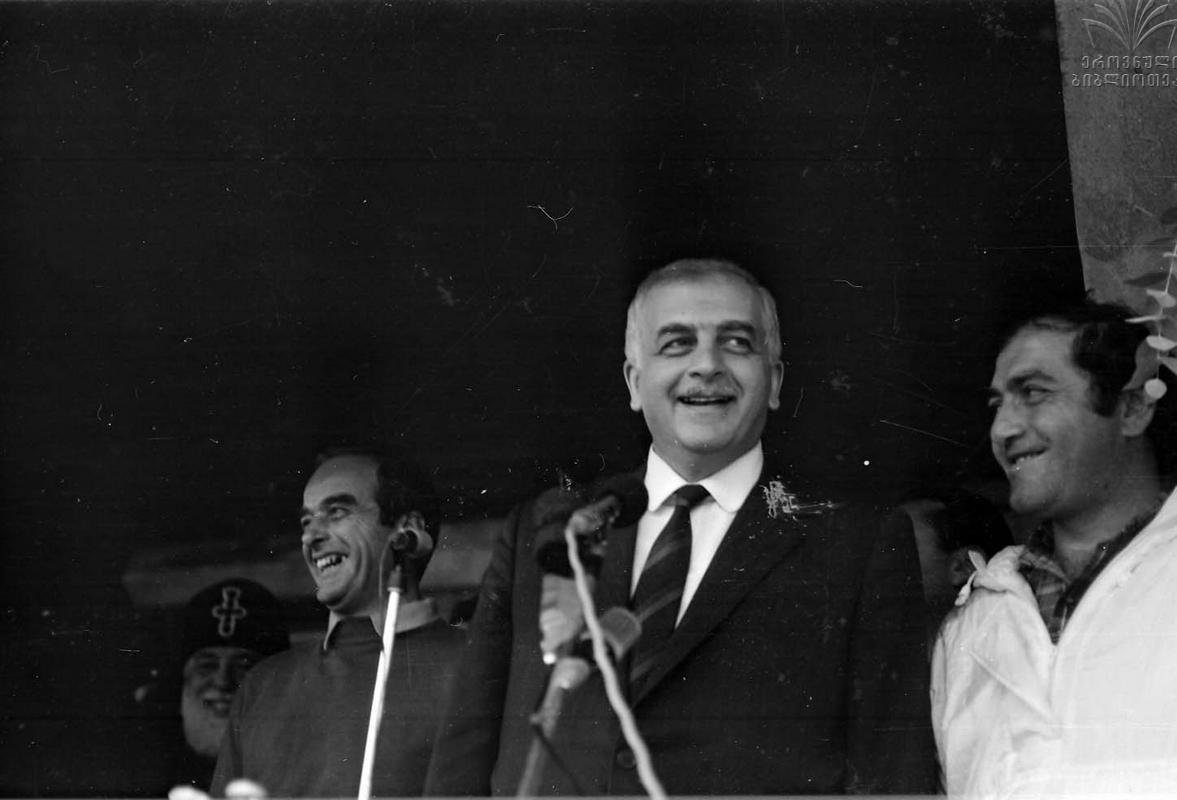 Zviad Gamsakhurdia. Photo: Elefter Lapachi
Zviad Gamsakhurdia. Photo: Elefter Lapachi
December 22, 1991
A civil war broke out in Tbilisi. A confrontation between Gamsakhurdia’s government and the rebel military and politicians resulted in casualties and destruction. Tanks were roaming the streets of the city; there were the sounds of shell explosions. Later on, the flashpoint of the civil confrontation shifted to Samegrelo. The war ended with the legitimate government being overthrown and the expulsion of President Gamsakhurdia from Georgia. The “Military Council’ came to power in the country. The civil war lasted for two years.
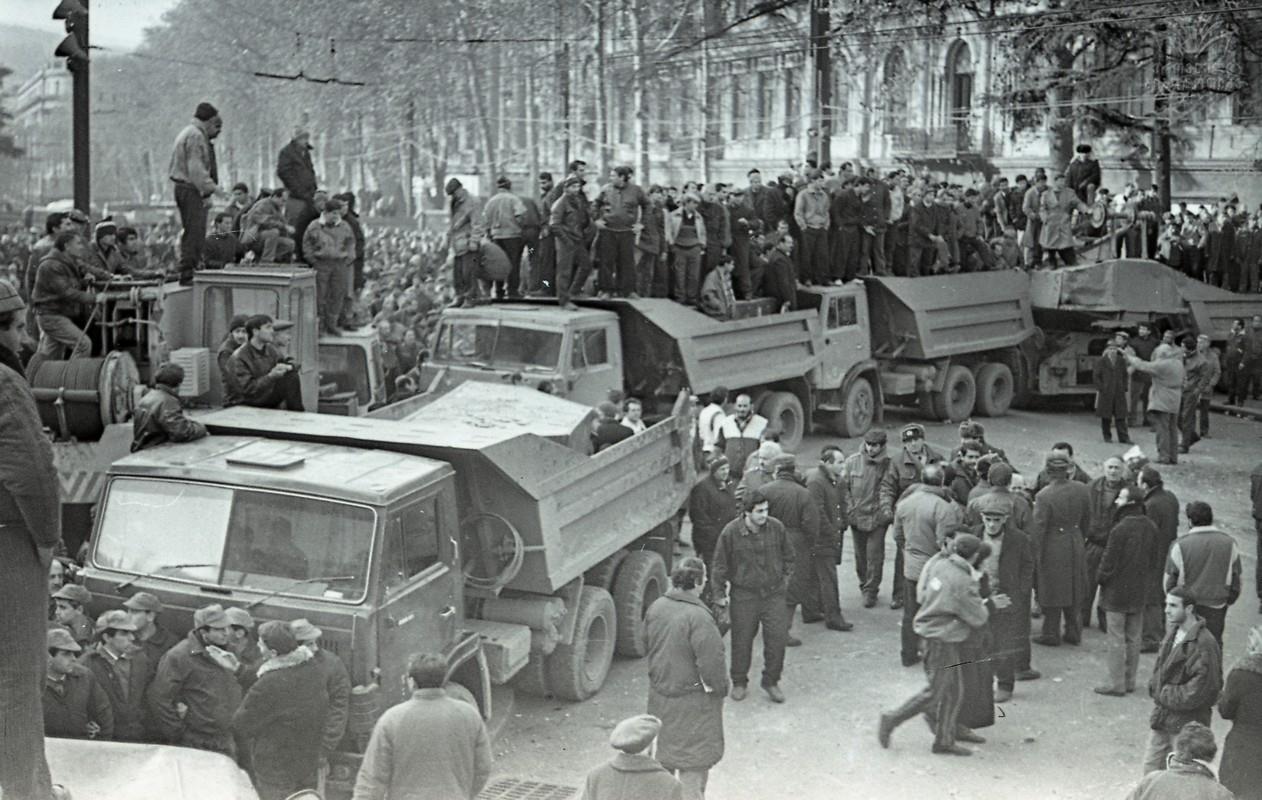 Tbilisi war. 1992 Year. Photo: Jemal kasradze
Tbilisi war. 1992 Year. Photo: Jemal kasradze
March 7, 1992
Edward Shevardnadze arrived in Georgia from Moscow on the invitation of the “Military Council”. Following his arrival, in November 1995, he became the country’s second president. Shevardnadze ruled the country for almost 11 years.
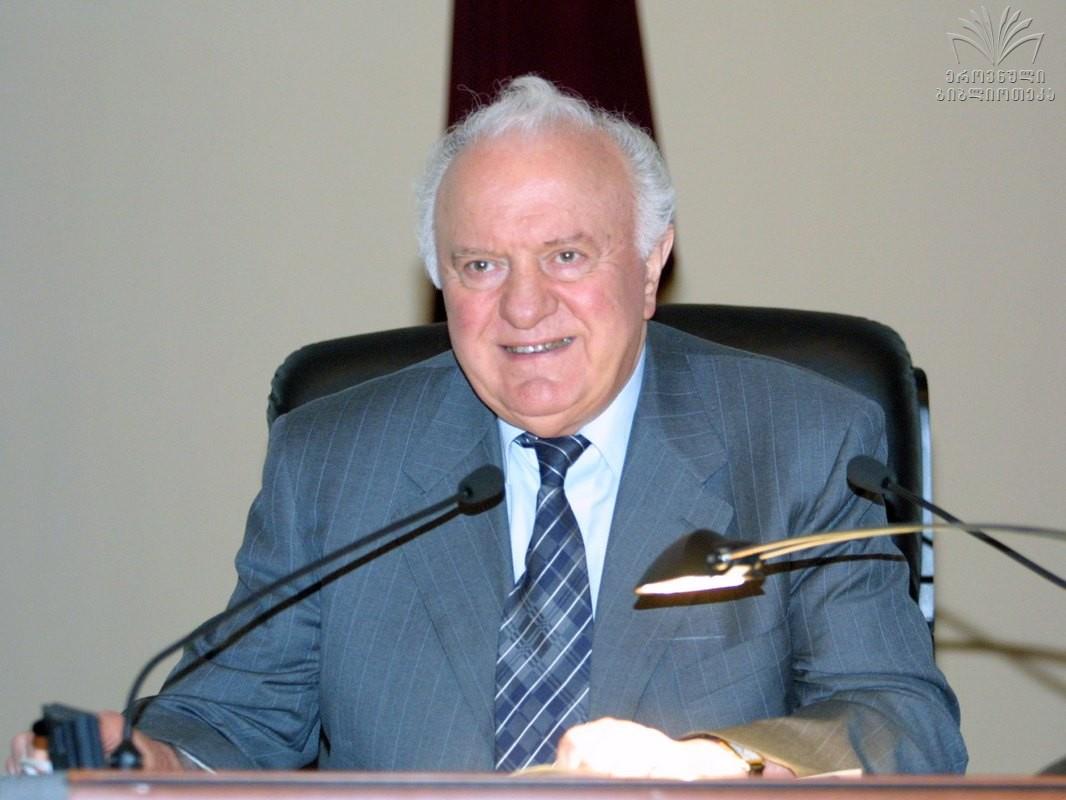 Eduard Shevardnadze, 1992. Photo: Elefter Lapachi
Eduard Shevardnadze, 1992. Photo: Elefter LapachiAugust 14, 1992
The hostilities began in Abkhazia. Some irreversible processes in Abkhazia and South Ossetia following the collapse of the Soviet Union and Russia also contributed to that. These regions demanded separation from Georgia. The hostilities first started in South Ossetia (in 1990), and later on in Abkhazia. The Abkhazian war lasted for 13 months and resulted in Abkhazia declaring its independence. Neither Tbilisi nor the international community have recognized the independence of either Abkhazia or South Ossetia.
Thousands of people were killed as a result of hostilities in Abkhazia and South Ossetia on both sides. About 265,000 ethnic Georgians were internally displaced at various times as a result of the conflict.
 Ochamchire, 1992. Photo: Jemal Sirbiladze
Ochamchire, 1992. Photo: Jemal SirbiladzeAugust 24, 1995
The Georgian Parliament passed the country’s fundamental law, the Constitution.
The year 1999
Georgia became a full-fledged member of the Council of Europe. “I am Georgian, and therefore, I am European!” – Zurab Zhvania, ex-Premier of Georgia, proclaimed these words at the session of the General Assembly of the Council of Europe.
November 23, 2003
Peaceful public rallies against Shevardnadze’s leadership began in Tbilisi in November 2003. They resulted in President Shevardnadze’s resignation and subsequently, in a change of political power in Georgia. These events are known as the ‘Rose Revolution’. At that point, presidential elections commenced (January 2004). Mikhail Saakashvili won the presidential race, thus becoming the third President of Georgia.
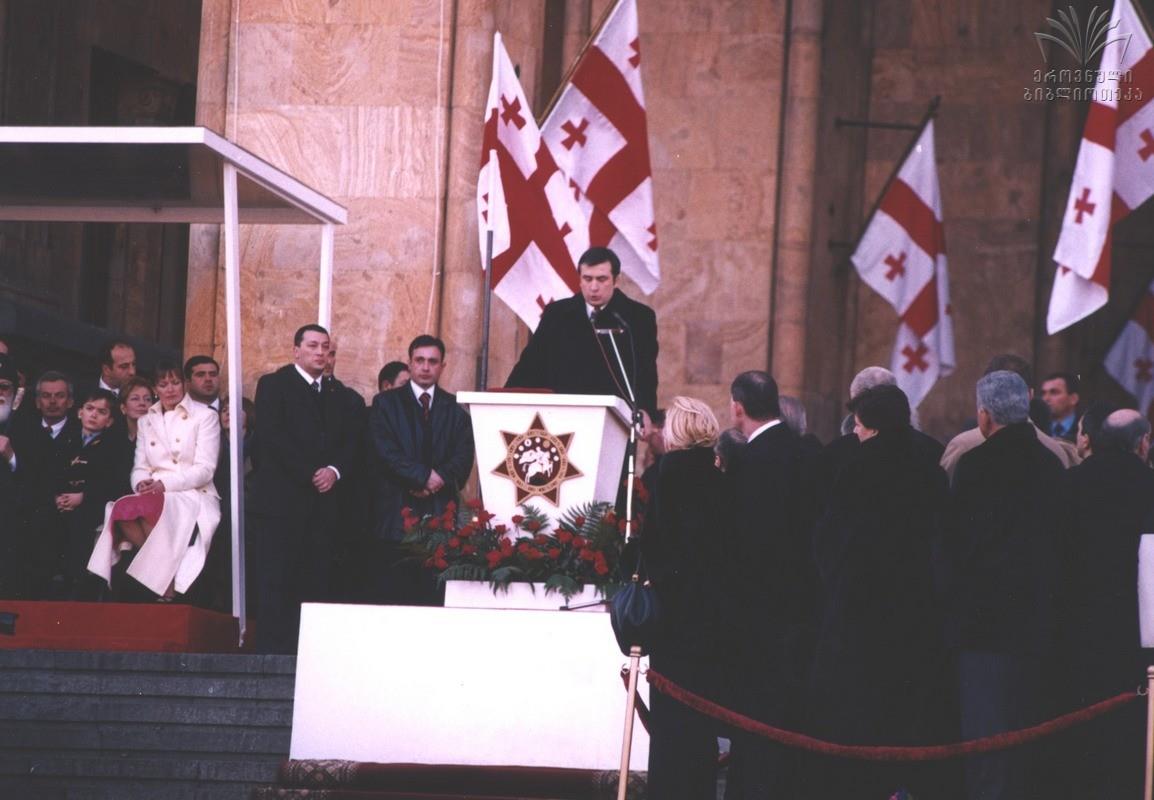 Mikheil Saakashvili’s Inauguration, 2004. Photo: Elefter Lapachi
Mikheil Saakashvili’s Inauguration, 2004. Photo: Elefter LapachiJuly 2004
Following the 2003 Rose Revolution, the young reformers’ government launched a comprehensive reform of the public sector.The police reform was regarded as the most successful among them.
The traffic police department was abolished in July 2004. There were no traffic police officers on Georgia’s roads for about a month. Then a public media campaign to attract new officers was launched. 15% of the recruits were women. Their monthly salary increased to $450 US, while their predecessors had only received $30 US. 2,467 men and women, who underwent a selection procedure, were enrolled into two-week training courses and were given newly designed uniforms with visible name inscriptions on their badges. The new police officers were given pistols made in Isreal instead of the Russian Makarov. The new patrol police began operating in August 2004. The crime rate sharply dropped, and police officers no longer took bribes. However, various experts and representatives of international organizations criticized the government for using illegal and illegitimate tactics in combating crime, repeatedly voicing human rights-related claims against the government.

February 3, 2005
The Georgian Prime Minister, Zurab Zhvania, was found dead. As it was officially reported, Zurab Zhvania died of carbon monoxide poisoning caused by a faulty gas heater.
 Zurab Zhvania’s family at his funeral. 2004. Photo: Elephter Lapachi
Zurab Zhvania’s family at his funeral. 2004. Photo: Elephter LapachiNovember 7, 2007
The authorities violently suppressed the opposition’s peaceful rally. The same day, the riot police burst into Imedi TV’s corporate building, owned by Georgian business tycoon, Badri Patarkatsishvili. According to the authorities, with the support of Patarkatsishvili and Russian special services, the opposition was plotting a coup. A state of emergency was declared in the country. In order to defuse the situation, President Saakashvili called snap presidential elections in January 2008. As a result, Mikheil Saakashvili was elected to a second term of presidency.
 Rustaveli Avenue, November 7, 2007. Photo: netgazeti
Rustaveli Avenue, November 7, 2007. Photo: netgazetiAugust 8-12, 2008
The Russian-Georgian war took place. Hundreds of people were killed on both sides as a result of this five-day war. Georgia lost control over certain regions of Abkhazia and South Ossetia; thousands of ethnic Georgians were internally displaced. On August 28, 2006, Russia recognized the independence of Abkhazia and South Ossetia. This was Europe’s first war of the 21st century.
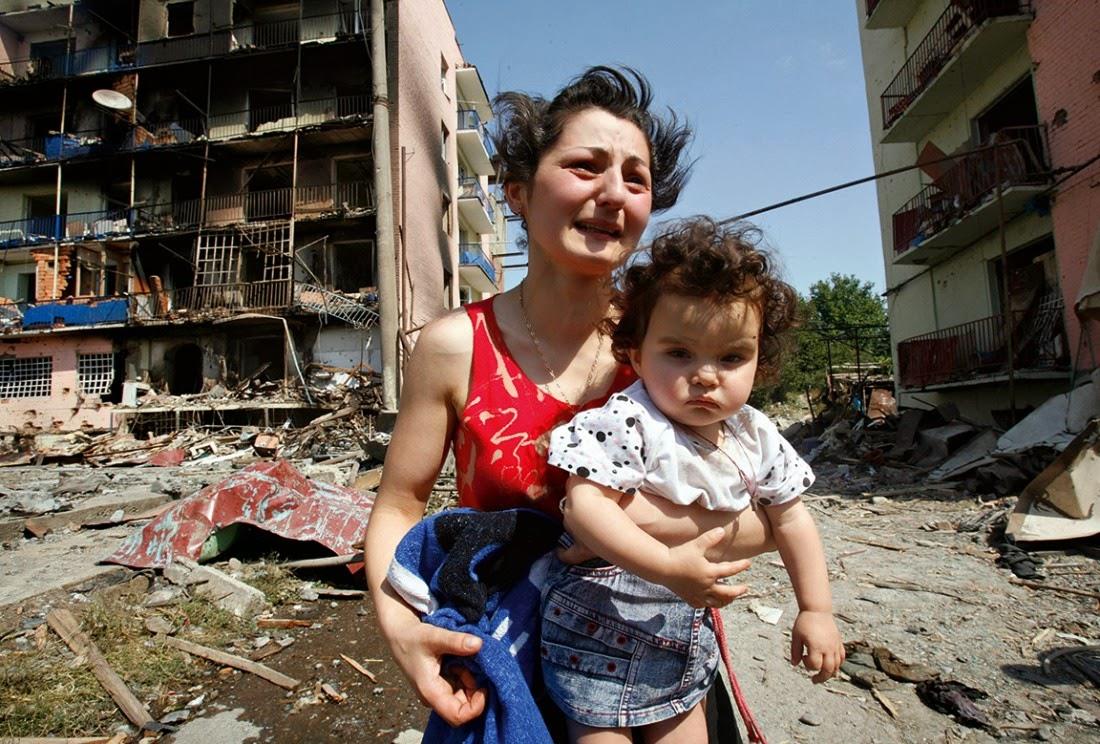 Gori, August 2008. Photo: REUTERS
Gori, August 2008. Photo: REUTERSOctober 1, 2012
The Georgian Dream coalition won the parliamentary elections in Georgia, putting an end to Mikheil Saakashvili’s United National Movement’s 9-year rule. A new government came to power in the country. It was the first peaceful change of power in the history of independent Georgia.
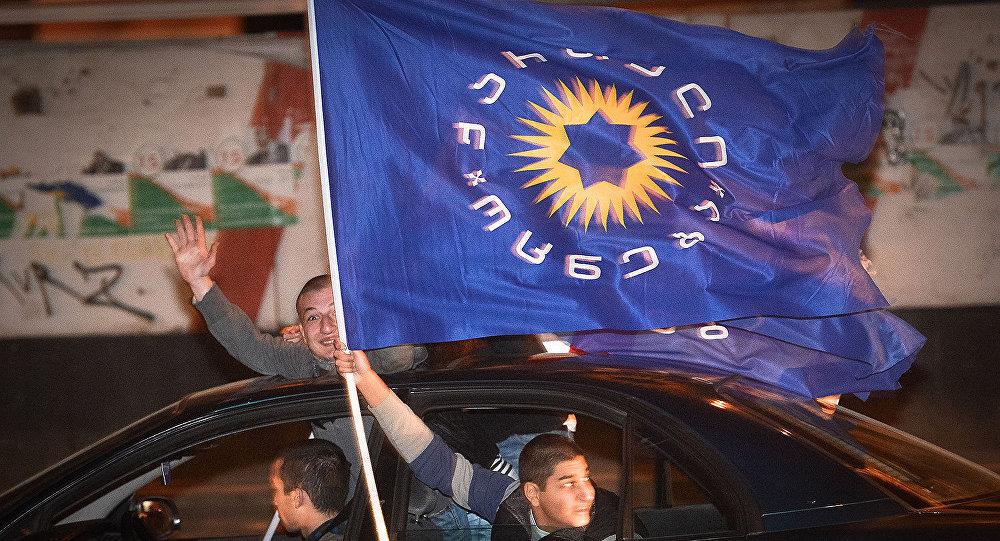 Georgian Dream’s supporters celebrating victory, October 1, 2012. Photo: Aleksei Kudenko
Georgian Dream’s supporters celebrating victory, October 1, 2012. Photo: Aleksei KudenkoJune 27, 2014
Georgia signed the Association Agreement with the European Union, thus reaffirming its Euro-Atlantic aspirations. The EU-Georgia Association Agreement is the major instrument to ensure that the Eastern Partnership countries get closer to EU standards and regulations. It is also possible that starting from this year, on the 25th anniversary of the country’s independence, citizens of Georgia will be able to travel to Europe visa-free. Today, Georgia is looking forward to the introduction of visa-free travel to EU countries.
October 8, 2016
Georgian Parliamentary elections are going to be held on this date. The way they are conducted will, in large part, predetermine the further chronology of independent Georgia’s history.
Published:26.05.2016



















